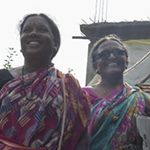
Anjanabai Uikey and Kusumtai Gadpayle
For over three decades, Anjanabai Uikey, now around 60, and Kusumtai Gadpayle, also around the same age, have shared an impeccable bond, as community health workers, and friends.
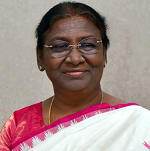
Smt. Droupadi Murmu was sworn in as the 15th President of India on 25 July, 2022. Previously, she was the Governor of Jharkhand from 2015 to 2021. She has devoted her life to empowering the downtrodden as well as the marginalised sections of society and deepening the democratic values.
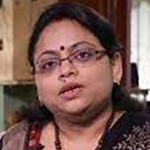
Ritu Karidhal hails from Lucknow, and as a child, she was always interested in outer space. As a teenager she started keeping track of all the activities of ISRO and NASA by collecting newspaper cuttings. To follow her dream, she went on to pursue a BSc in Physics from the University of Lucknow, and then joined the Indian Institute of Science (IISc), where she got a Masters in Engineering (ME) degree in Aerospace Engineering. Karidhal started working at ISRO in 1997 and she was the deputy operations manager for Mangalyaan.
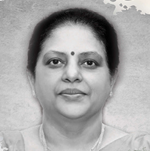
Tessy Thomas was Faculty in Guided Missiles, IAT Pune; scientist in DRDO, at DRDL, RCI and ASL and worked in various capacities as Guidance Designer and Mission Designer for Solid propelled Agni Systems. She led Agni-4 Project as Project Director for the-state-of-art with many new technologies like Composite rock motor casing, low stock, Stage Separation systems, integrated avionics etc.
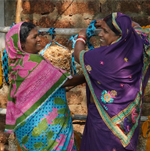
Sebati Samal is a role model amongst her peers, setting an example, of not allowing trying times to dictate her future rather she took it up as a challenge to grow and be self-reliant.
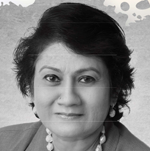
Rohini Srivathsa is the National Technology Officer at Microsoft India. In her role, she is responsible for driving innovation and growth through 'tech-intensity' - across industry and the government. Rohini began her career in R&D at AT&T Bell Laboratories (USA) and has 25+ technical and business publications in ACM/IEEE and other journals. She engaged with CxOs across emerging markets during her strategy consulting career at the Boston Consulting Group (BCG) and IBM Global Business Services, both in India. As CTO of Janalakshmi Financial Services (now Jana Small Finance Bank), Rohini was responsible for driving tech-driven business transformation towards financial inclusion among the urban underserved in India.
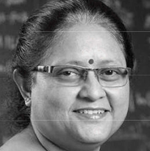
Sanghamitra's contributions lie in the intersection of machine learning, artifical intelligence, and bioinformatics. She is internationally acclaimed for her clustering methods using genetic algorithms, with significantly improved convergence rates while also detecting the appropriate number of clusters. Development of AMOSA, the first multiobjective simulated annealing with nongreedy selection and capability of handling many objectives, is another fundamental contribution. Over the past decade Sanghamitra designed techniques in computational biology, demonstrating the importance of innovative methods for making biological discoveries impacting therapeutic efforts. She designed algorithms for studying the role of microRNAs in cancer, HIV1 pathogenesis and Alzheimer's progression. She identified novel genetic markers for breast and colon cancer. Recently, she is focussing on developing methods for analyzing high dimensional single cell RNAseq data.
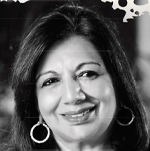
Kiran Shaw is Executive Chairperson, Biocon Ltd (founded Biocon in 1978); Executive Chairperson, Biocon Biologics Ltd (2021-present) and Non-Executive Chairperson, Syngene International (2015-present). She has specialized in developing and producing therapeutic proteins and other drugs through recombinant DNA technology or genetic engineering. Through investments in cutting-edge R&D, innovative science, and differentiated technologies, she has made a difference in global health by developing high-quality biopharmaceuticals and enhancing access for patients worldwide. Kiran Mazumdar-Shaw has leveraged her bioengineering knowledge to enhance global healthcare through high-quality, affordable biopharmaceuticals. Biocon, the company she founded in 1978, has used advanced science, innovative tech platforms, and international research collaborations to develop therapies that can lower treatment costs, increase access and improve healthcare outcomes.
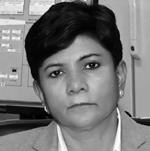
Sukla Mistry is the first woman Functional Director on Indian Oil Board. The life journey of Sukla Mistry speaks of the strength and indomitable spirit of a girl who has risen from the hardships of living under humble circumstances in a remote village called Basanti in Sundarbans, West Bengal, to emerge as a strong corporate leader in the oil and gas sector of India. She took over as Director(Refineries), India Oil Corporation Limited., the flagship energy enterprise of India, in 2022.
Source: Published by Indian National Academy of Engineering
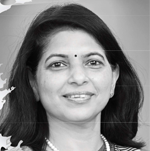
Vartika Shukla is currently holding charge of Chairman & Managing Director of India’s premier Energy Consultancy Company – Engineers India Limited(EIL). She is the first woman Chairman & Managing Director of the company. She started her career as Management Trainee in EIL and held various leadership positions in the company assuming the charge of the company in the year 2021. She is also holding additional charge of Director(Technical) and Director(Finance) of the company. She has played a key role in several new initiatives of the company such as EIL’s entry into Bio-fuels, strategic alliances with technology partners and collaborative partnerships with academia and industries.
Source: Published by Indian National Academy of Engineering
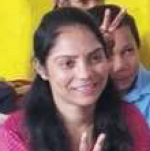
Born in a remote tribal village, Puspa’s orthodox father held her back from becoming a doctor but could not deter her from pursuing education and becoming a teacher.
As a primary school teacher, Pushpa focussed on foundational learning for first generation learners. Her work has brought about a change in the Basic Education System of the state, benefiting close to 7.5 lakh beneficiaries.
Source: WOMAN EXEMPLER PROGRAM

For the second year in a row, the top ranks of the Union Public Service Commission’s Civil Services Examination (CSE) were secured by women, the result of which was declared on Tuesday. However, this year, there was another thing in common among the toppers — three out of four women were graduates from the University of Delhi. While CSE 2023 topper, Ishita Kishore, is a graduate of Shri Ram College of Commerce (SRCC), the second-rank holder Garima Lohia is a graduate of Kirori Mal College and the fourth-rank holder Smriti Mishra is a graduate of Miranda House.
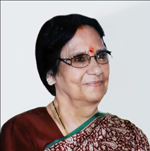
Originally from Pakistan’s Sindh, Sarla Ahuja was always a force to be reckoned with. Her family moved to India’s Rajasthan during the Partitionin 1947. Despite the limited resources and opportunities, Sarla was determined to make some thing of herself.
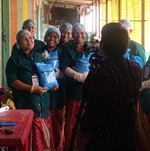
Thirty-two-year-old Pallavi Hota sums up in one line, her journey from her humble beginnings to becoming a celebrated TV news anchor, to spearheading a women-only You Tube channel. Raised by a single mother in the remote village of Balangir in western Odisha, she completed her graduation, enrolled for a diploma in journalism at the Indian Institute of Mass Communication (IIMC) in Dhenkanal, nearly 300 km from her native village.
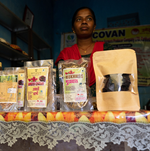
‘Sangini’, a part of the Maharashtra State Rural Livelihoods Mission (MSRLM) christened ‘Umed’ (or Hope), started a few years ago by bringing together around 32 Self Help Groups in Ramgarh. These Self Help Groups, along with those in the surrounding villages of Kurkheda and Korchi blocks, collect wild berries and custard apples from their forests, or the designated community forest areas (CFRs). Sangini buys them from the groups and process the fruits into pulp, before selling it to big buyers. Sangini’s pulp-making unit is one of the several such processing centres run only by women-led groups in Gadchiroli, leveraging the minor forest produce they harvest collectively round the year. Ramgarh works on Jamun and Custard Apple. Jambhulkheda, a village in another block, works on honey and Chironji. There are also units that process Tendu-Bamboo. Once the women have been mobilised and attended capacity-building trainings, the Livelihoods Mission programme provides funds and grants to start a unit. Umed’s institutional design is robust. A bunch of 10-11 women form a Self Help Group. A village would generally have more than one of these groups, which are then merged into a Gram Sangh, or village organisation. Ramgarh for instance has 32 Self Help Groups, with 365 women members.
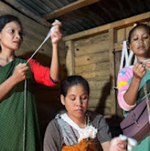
Iaishah Rymbai was born in Kdonghulu, a matrilineal village dominated by the Khasi tribe. The Khasis – who account for the state's largest ethnic community – are one of the last existing matrilineal societies in the world. “It is true that we Khasi women have the power but not nearly as much as you think,” Iaishah, 45, says. The Khasi community is matrilineal and is often upheld as an example of a gender equal society.
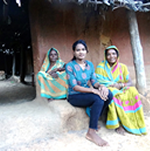
Kalabati Dehury was just 20 but not having finished school or picked up any professional skills, she sat idle at home, depending on hand-outs from neighbours and friends. But two years back, her fortunes changed when she was mobilised to enrol in the UN Women-supported Second Chance Education (SCE) and Vocational Learning Programme implemented by a local NGO partner called Aaina, in Odisha’s Dhenkanal district.
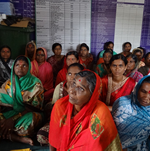
After Sanjeevani Shinde lost her doctor husband in an accident in 2011, she rarely stepped out of her home.She was grieving but also prevailing social norms that discriminate against widows, including not being able to take part in auspicious events such as marriages and other celebrations, kept her confined at home.
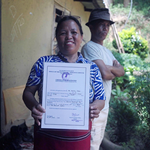
Tabitha from Khuringmul village of Chandel district in Manipur from the Taro – also called the Tarao – tribe of Manipur, is a self-taught skilled artisan-entrepreneur, who works wonders with bamboo. She has two junior school-age sons and a husband who works as a mason. The income from bamboo traditional products like baskets and floor-mats is the main source of livelihood for the family. She learnt the craft when she was only around 15 years of age. In the early days, she worked small-scale, making products that she would sell in the local haat.
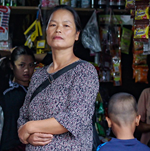
There is hardly anyone in Mamit who has not heard of Seni, a 50-year-old single mom of three children and a successful entrepreneur and district-level politician. Seni’s parents were farm labourers in the region’s jhum plantations and didn’t have enough money to fund Seni’s education. Seni’s elder sister was married off when she was still in school, while her brother left home early for Aizawl, in search of a better future. A younger sister who was suffering from depression died before she turned 16, making Seni the only available child to care for their parents. “Father was a heavy smoker from his early days. He developed ulcers in his stomach and finally he succumbed to his illness. My mother turned blind out of a blue,” Seni remembers.
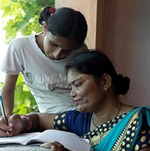
“There is no age for studying. Learning can happen anytime. It is an investment for the future," says Nisha Chauhan, Ward Member of the local Gram Panchayat in Kishanganj block of Baran district in Rajasthan. Nisha is one of the 350 women in Baran district, who re-connected with education after a long gap. Most of these women had discontinued their education for various reasons, including financial constraints, early marriages, and their caregiving burdens.
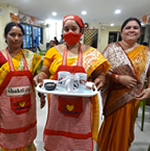
If you happen to be in Balangir, drop by at the Shakti Café at the Bus Station – and meet the ever-smiling women who run it. Or make your way to Harishankar Panth Nivas, a tourist guest house in the remote corner of this thickly forested district. A block level federation of Self Help Groups, the Annapurna Sanchayika Mahasangh, manages the guest house like a professionally-run hotel.
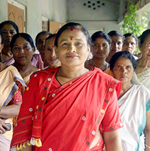
Renu Barua was born in 1980, in an impoverished family that could not make ends meet most days. But she was fortunate that despite their poverty, her parents supported her dreams and did not rush her into marriage. She also married into a prosperous and supportive household in 2004.
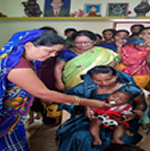
It is `Pitrapaksh’ and Lakshmi Das Manikpuri’s house in Anjani village of Kanker is buzzing with various activities to mark the first death anniversary of her husband. Neighbourhood women have gathered in Lakshmi’s house. Some are busy cooking for the occasion, while others are busy making arrangements for the guests that would soon arrive.
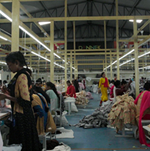
Dantewada, a beautiful district in southern Bastar region of the Chattisgarh state - flanked by mountain ranges and thick saal and teak forests, and numerous rivers - until recently, used to be known for being the worst-hit by Left extremism violence in the Bastar region. However, this remote Aspirational District is now a hub of garment manufacturing for several leading brands in the country.
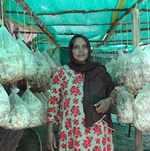
Remya, a 30-year-old newbie entrepreneur, wants to start her own bakery and cake shop, expanding her home baking skills to sell in the local markets.
Shinila, around 35 years of age, has a way with scrap papers; she turns them into usable paper bags.
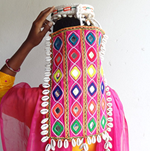
When her parents migrated to Bengaluru for work, Yashodha Pawar did not move with them – she chose to stay back in her home in Thanagundi tanda, a few kilometers from the town of Yadgir in north Karnataka, to learn the art of Lambani embroidery – a speciality of her community that is passed down through generations of women.
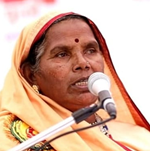
“Till a few years ago, women in traditional tribal outfits would get up from their seats in a bus and offer it to a man in shirt and trousers. But now, we are aware that we have also paid for the ticket and have a right to remain seated," says Sumli Bai Gangaram, a resident of Warla block of Barwani district.
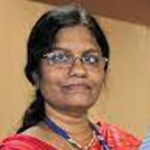
Mutthaya Vanitha is an Indian electronics system engineer who has led projects on satellites at the Indian Space Research Organization (ISRO). She is currently the project director of the Chandrayaan-2 lunar mission of the ISRO. Born to a civil engineer and an electronics and communications engineer, from Chennai, India. She has worked at the Indian Space Research Organisation (ISRO) for 32 years now and has worked tirelessly to give India the privilege of being remembered as the fourth country in the world to make a highly challenging soft-landing on the Moon.
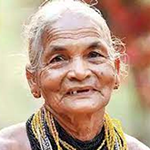
Tulsi Gowda is an Indian environmentalist from Honnali village, Ankola Taluk in the State of Karnataka. She joined the forest department as a temporary volunteer, after having worked for over 30 years, she was offered a permanent job in the department because of her dedication to nature preservation, from where she retired at the age of 70. She belongs to the Halakki indigenous tribe in Karnataka and grew up in an economically disadvantaged family. Even though Tulsi Gowda never received any formal education, yet, today she is known around the world as the ‘Encyclopedia of the Forest’ with ‘endless knowledge’ about plants and herbs.

Avani Chaturvedi has become the first Indian Air Force women flying officer to flight a fighter gets, MiG-21 Bason. MiG 21 Bason is considered to have the highest landing and takeoff speed over the scope. She was earlier being trained with a trainer, but then Flying Officer, now squadron Leader Avani Chaturvedi made history as she flew her plane for 30 minutes from Gujarat’s Jamnagar Airbase. Avani hails from Rewa district of Madhya Pradesh. She started her schooling from Deoband in Madhya Pradesh. She was born on 27th of October 1993 in Rewa, MP. She was highly inspired to join the Indian Air Force by his elder brother, who is an Indian Army Officer.

For over three decades, Anjanabai Uikey, now around 60, and Kusumtai Gadpayle, also around the same age, have shared an impeccable bond, as community health workers, and friends.

Design has always been a motivating factor in my life — colours, crafts, and art have fascinated me since before I can remember. This passion is reflected in every facet of what I do. After pursuing my post-graduate education at NIFT, Delhi, I worked for 15 years in the apparel industry, with clients across the globe. But somewhere amidst this, I felt the need to introspect.

Anju Turambekar is a fine example of what a woman can achieve with grit and determination. Anju has been an elite football player, athlete, coach, instructor, assessor, administrator, and inspiration for the stakeholders of the game and society.

Women in Lesliganj are looking beyond loans for livelihoods. Other than for income-generation activities, women have also taken loan for their children’s education. Since it is up to the SHGs or the Village Organisations or finally the Cluster Level Federations –conglomerates of SHGs at various levels—to sanction the loan, such requests are not turned down.

Born and raised in a middle income household in Ahmedabad, Sudha pursued her education largely on scholarships leading up to the Indian Institute of Management, Lucknow. After 17 years in the technology/IT leading business operations, strategic planning and engineering across Intel, Verizon, Credit Suisse & Infosys, Sudha joined The/Nudge Foundation in 2016 with the purpose to alleviate poverty sustainably and scalably.

An Accenture Managing Director and accomplished global leader with passion in Innovation, Technology Strategy and Architecture across various industry domains. A people’s person who believes in helping people realize their true potential and providing the right levers to step them up.

The second Millennium Alliance Award in 2020 (FICCI and USAID) is a testimonial to CLT’s scale on its digital STEM content suite, developed in-house in regional languages and delivered to remote rural schools through multiple technology delivery models– both online and offline.

Deepthi Bopaiah is the Executive Director at GoSports Foundation, a national award-winning non-profit organisation founded in 2008, which supports junior, emerging, and elite athletes across Olympic and Paralympic disciplines. Formerly a wealth adviser and trainer during her 6- year stint at HSBC, Deepthi decided to cast her lucrative corporate career aside to pursue her passion for sports and has been with the Foundation since 2012.

This is a woman who only three years ago became involved as a leader in her community, quickly transitioning from SHG member to service provider, from service provider to board member, and from board member to president of the SMCPCL(Samriddhi Mahila Crop Producer Company Limited) . If one assumed that this quick transition from her earlier life meant it was an easy transition, they would be profoundly incorrect.
